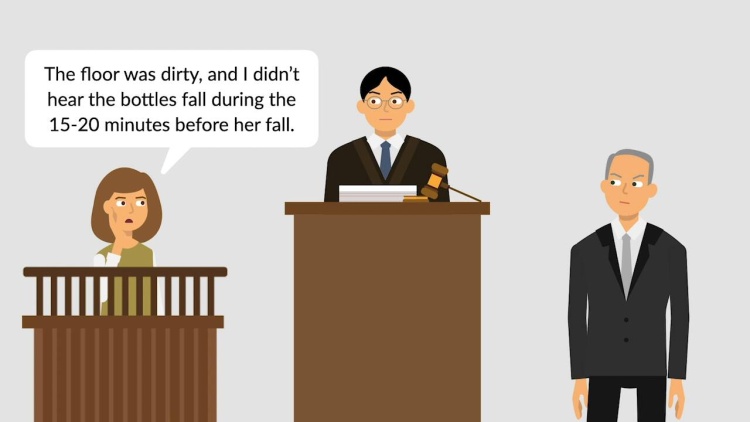Negri v. Stop and Shop, Inc.
New York Court of Appeals
480 N.E.2d 740 (1985)
- Written by Angela Patrick, JD
Facts
Paquita Negri (plaintiff) was shopping at a grocery store owned by Stop and Shop, Inc. (defendant) grocery stores. Negri slipped and fell backward, injuring her head. Negri sued Stop and Shop for negligence. As part of Negri’s negligence claim, Negri had to show that the store had actual or constructive notice of a dangerous condition, the store failed to remedy the danger, and the condition harmed Negri. At trial, testimony established that broken jars of baby food made the floor dirty and messy where Negri fell. Other evidence established that a witness near where Negri fell had not heard any jars fall or break in the 15 to 20 minutes before the fall and that the aisle had not been cleaned or inspected for between 50 minutes and two hours before the fall. However, no direct evidence was submitted showing how long the baby food had been on the floor or whether any store employee knew about the mess. The jury found in Negri’s favor. Stop and Shop appealed. The appellate court found that the solely circumstantial evidence presented at trial did not support a finding that Stop and Shop had actual or constructive notice of a defective condition. The appellate court reversed the judgment and dismissed Negri’s complaint. Negri appealed to the New York Court of Appeals.
Rule of Law
Issue
Holding and Reasoning (Memorandum opinion)
What to do next…
Here's why 899,000 law students have relied on our case briefs:
- Written by law professors and practitioners, not other law students. 47,000 briefs, keyed to 994 casebooks. Top-notch customer support.
- The right amount of information, includes the facts, issues, rule of law, holding and reasoning, and any concurrences and dissents.
- Access in your classes, works on your mobile and tablet. Massive library of related video lessons and high quality multiple-choice questions.
- Easy to use, uniform format for every case brief. Written in plain English, not in legalese. Our briefs summarize and simplify; they don’t just repeat the court’s language.






